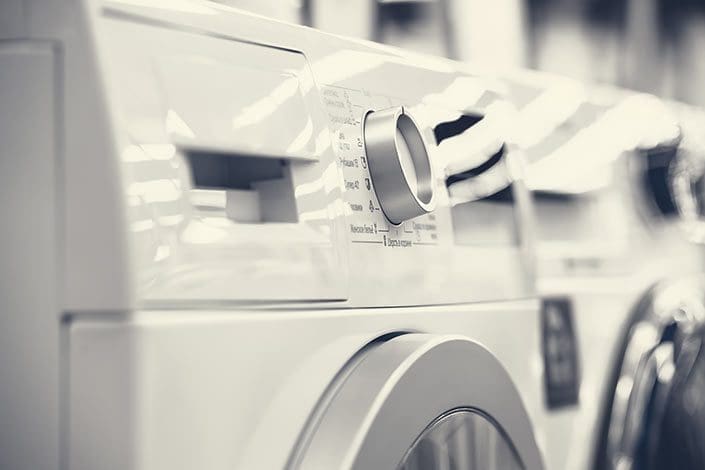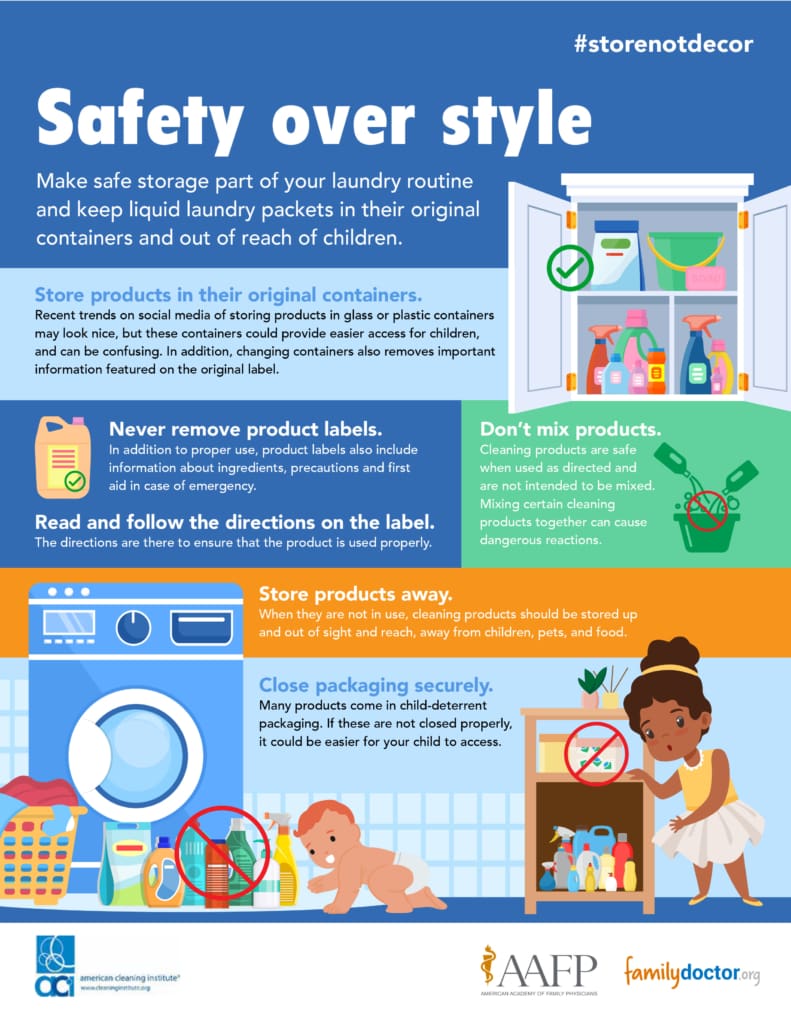
According to the National Capital Poison Center, household cleaning supplies—including kitchen cleaners and liquid laundry packets—are the second most common exposure to poison among children under 6 years of age. Since the COVID-19 outbreak, cleaning has been on the rise. A recent poll from the American Cleaning Institute found that 53% of people reported using cleaning products more frequently. While cleaning and disinfecting plays an important part of staying healthy – maintaining safe cleaning storage habits should not be overlooked.
Properly storing these products can help keep accidental exposures from happening and make your home a safer place.

Path to improved safety
When it comes to using and storing these products safely, consider the following tips:
- Store products in their original containers. Recent trends on social media of storing products in glass or plastic containers may look nice, but these containers could provide easier access for children and can be confusing. In addition, changing containers also removes important information that’s featured on the original label. When it comes to cleaning products, think #StoreNotDecor to keep safety top of mind with any home organization or improvement project to prevent potential poison exposures.
- Never remove product labels. In addition to proper use, product labels also include information about ingredients, precautions and first aid in case of emergency.
- Read and follow the directions on the label. The directions are there to ensure that the product is used properly.
- Store products away. When they are not in use, cleaning products should be stored up and out of sight and reach, away from children, pets, and food.
- Close packaging securely. Many products come in child-deterrent packaging. If these are not closed properly, it could be easier for your child to access.
- Don’t mix products. Cleaning products are safe when used as directed and are not intended to be mixed. Mixing certain cleaning products together can cause dangerous reactions.
- Schedule cleaning with kids in mind. Choose times when children are napping or not at home.
- Conduct routine safety checks in your home. This can reduce the likelihood of accidents.
- Evaluate the safety of other environments your child visits often. Consider checking the household cleaner and laundry product placement at your child’s daycare or even relatives’ home where your child spends time.
In addition to following these steps, make sure you dispose of empty cleaning containers safely. Replace the caps first, then place the container in a sealed recycling bin or garbage container.
Things to consider
Liquid laundry packets have become increasingly popular in recent years. Like with all cleaning products, they must be stored properly to help prevent accidents at home, which can happen quickly with young children around.
In a survey by the American Cleaning Institute, 36% of Americans say they believe they can enhance their laundry space by putting detergent in glass jars, and 12% say they already do this.
While overall exposure to liquid laundry packets among young children has decreased, there are still some precautions parents should take:
- Store liquid laundry packets up high and out of reach and sight of children.
- Completely close and seal the containers after each use.
- Always store the packets in their original containers with the safety label intact.
- Never display liquid laundry packets in decorative bowls or glass jars for home décor purposes. When it comes to products that could be potentially toxic to children, remember to “store, not décor.”
Parents should also keep the number for the Poison Help Line (1-800-222-1222) somewhere easily visible or accessible in their homes. You should call this number immediately if any cleaning product is ingested.
Questions to ask your doctor
- What are some of the more common chemicals children tend to get into?
- What health problems can accidental exposures cause in children?
- What should I do if I’m not sure whether my child has ingested one of these chemicals?
Resources
The American Cleaning Institute: Packets Up! Liquid Laundry Packet Safety
The American Cleaning Institute Blog: Planning for Poison Prevention
American Cleaning Institute: Cleaning is Caring Web Page
The development of this content was in collaboration with the American Cleaning Institute™.
![]()
Copyright © American Academy of Family Physicians
This information provides a general overview and may not apply to everyone. Talk to your family doctor to find out if this information applies to you and to get more information on this subject.







